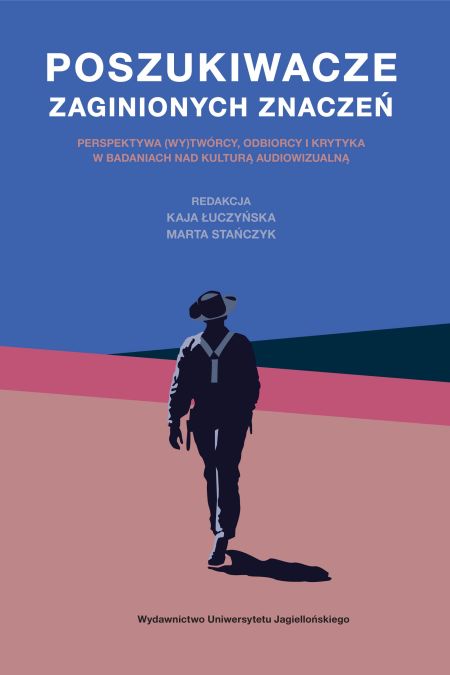Wydawnictwo Uniwersytetu Jagiellońskiego has published „Raiders of the lost meanings. The perspective of an author, recipient and critic in the study of audiovisual culture”. Our association is the patron of this publication.
„In the book we focused on rejected, unwanted and unnecessary films which needed to be recycled to find a landfill of meanings” – write the editors of the volume Kaja Łuczyńska and Marta Stańczyk. „Such recycling, however, is not only a simple blurring of the boundaries between high and low culture – we were primarily interested in the dynamic of the inclusion and exclusion processes, seemingly innocent but in reality political, establishing canons and shaping the viewers’ notion not only of the cinema but also reality. In opposition to the academic canon ressentiments we are cultivating the garbage semiotics in which we replace the hegemony of aesthetics with a different kind of criticism, based on a diagnosis of the social, political or cultural phenomena. Therefore in this publication Alain Resnais is adjacent to Lloyd Kaufman, niche Mexican cinema to The Asylum studio films and criticism is focused on Hollywood, not Bollywood”.
The publication includes articles which analyse topics such as:
- Psychopaths of seventies and eighties in the first decade of the twenty-first century (Jan Sławiński),
- Between quality TV and soap opera. The Colombian version of Breaking Bad (Mateusz Katner),
- Modern fairy tale – a broken fairy tale? The film adaptations of fairy tales on the basis of The Asylum studio mockbusters (Kamila Kowalczyk),
- The mocking romance of Troma studio with superhero cinema (Jakub Izdebski),
- King Bruce Lee the champion of karate. Reception of martial arts films in the Polish People’s Republic (Grzegorz Fortuna),
- Exposing superheroes (Alicja Mazurkiewicz),
- Stray time traveler. Je t’aime, je t’aime by Alain Resnais (Kamil Kalbarczyk),
- Demons of progress. Alucarda, the daughter of darkness by Juan López Moctezuma (Bolesław Racięski),
- Masala movie – kitsch or classic? The cross-cultural perception of Indian commercial cinema (Blanka Katarzyna Dżugaj),
- The fall of the house of Lubicz. Klan as the anti-saga of Polish family (Barbara Szczekała),
- Sisterhood, girl power and first wife clubs – feminist revenge comedy (Marta Stańczyk),
- Plastic heroes. American gay comedies of the last fifteen years (Mateusz Góra),
- The game of Arnold Schwarzenegger’s and Sylvester Stallone’s biceps. Methods of exploiting male bodies in films with action film stars of the eighties (Kamila Kołacz),
- Unwelcome love and unreasonable hatred – Russians in the American cinema of the forties (Kaja Łuczyńska),
- A revolution with no class (Joanna Łuniewicz, Mateusz Ciołkowski),
- Templars among us. Esoteric images of history in popular cinema (Fryderyk Kwiatkowski).
As the editors of the volume emphasise, its individual parts as well as the essays included in the publication enter into a dialogue – there is a confrontation of approaches, concepts, methods due to which the discourse of film literature becomes the topic visible in the background or perhaps even more broadly: in the humanities.
The publication is dedicated to the memory of a trickster Przemek Dudziński who passed away in 2014. The Association of Pop Culture Researchers and Pop-cultural Education „Trickster” is its patron.
